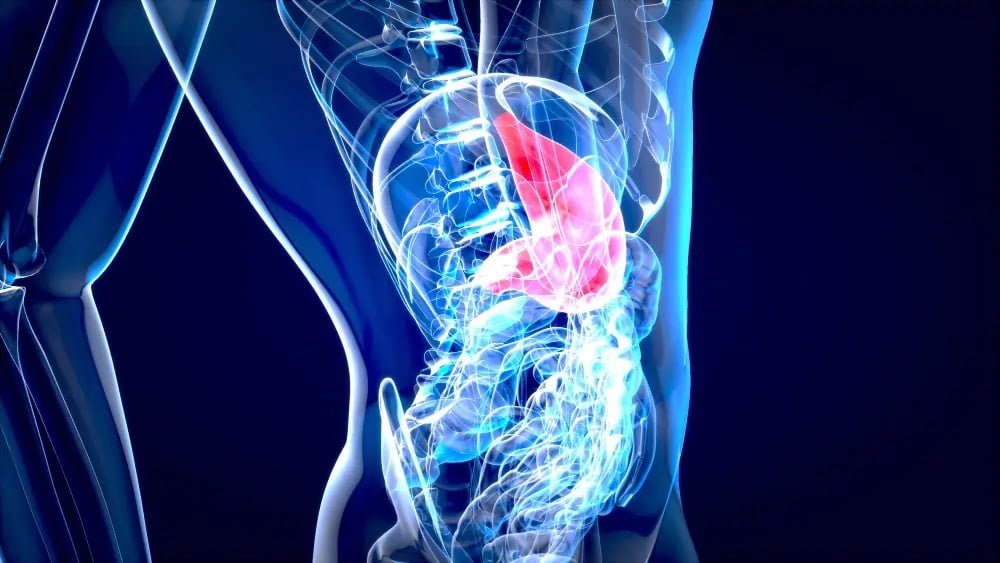
Schizophrenia is a more complex and serious mental condition that significantly affects the view of reality. This mental condition may cause a variety of symptoms, such as hallucinations, delusions, and disorganized thinking and behavior, which may ultimately interfere with daily functioning. Most patients with schizophrenia need lifelong treatment, and early treatment is essential to control their symptoms and improve their prognosis.
Schizophrenia involves a range of symptoms that cut across thinking, behavior, and emotions. Although symptoms and signs might vary from person to person, they mostly include:
Delusion
Delusions are false beliefs that have no basis in reality. People suffering from schizophrenia may believe they are being harmed or harassed, that some gestures or comments are aimed at them, or that they have extraordinary abilities or fame. These delusions are typical of schizophrenia and can be deeply ingrained in a person’s thoughts.
Hallucinations

Hallucinations are the seeing of things that do not exist, for example, hearing voices or seeing things that are not there. Such hallucinations can affect any sense, but the most common type among those suffering from schizophrenia is auditory hallucination or hearing voices.
Disorganized Thinking (Speech)

Disorganized speech reflects disorganized thinking. Communication may be impaired, which could result in answers given that are partially or fully irrelevant to the questions at hand. In some people, speech may even be assembly of meaningless words, as sometimes described as a “word salad.”
Extremely Disorganized or Abnormal Behavior

Schizophrenia can range from childlike silliness to unpredictable agitation. In schizophrenia, a person may be unable to concentrate on goals or tasks and may resist instructions, have inappropriate or bizarre postures, be completely unresponsive, or make excessive, aimless movements.
Negative Symptoms

Negative symptoms are characterized by decreased or completely lost functionality of normal action. These could be evidenced by the refusal to carry out hygiene tasks, seeming detached emotionally (less eye contact, same expressions on one’s face or speaking flatly), an abstinence from mundane activities, becoming withdrawn or even incapable of experiencing happiness.
Schizophrenia is a fluctuating condition. Symptoms change with time as to type and severity; often, episodes of exacerbation and remission follow one another. Some may persist continuously.
Typically, in general, symptoms of schizophrenia appear around the early or mid-20s in men and around the late 20s in women. Its diagnosis is rare in children, while it is still rarer in people more than 45 years of age.
Symptoms in Teenagers

Recognizing schizophrenia symptoms in teenagers can be challenging. Some early signs of schizophrenia in adolescents may overlap with typical developmental changes during the teenage years, including:
- Withdrawal from friends and family
- A decline in academic performance
- Sleep disturbances
- Irritability or depressive mood
- Lack of motivation
In some cases, recreational substance use, such as marijuana, methamphetamines, or LSD, can produce symptoms resembling those of schizophrenia.
Compared to adults, teenagers with schizophrenia may be less likely to experience delusions but more likely to have visual hallucinations.
When to Seek Help

Most of the time, people suffering from schizophrenia may not be aware of what is happening to them; hence, it is imperative that family and friends provide support in seeking professional help. If you suspect that someone close to you might have symptoms of schizophrenia, then open and supportive communication is essential.
Though you can’t make a person get professional help, you can influence and assist the person in locating a qualified doctor or mental health professional. If that individual is a threat to their own life or others and cannot take care of himself or herself in basic manners, help may be required immediately. In some situations, there may be an emergency requirement for hospitalization, and that process is guided by specific state laws about involuntary commitment to mental health treatment.
Suicidal Thoughts and Behavior
Suicidal thoughts and behaviors are unfortunately very prevalent among people with schizophrenia. If you believe that the individual is likely to attempt suicide or has already attempted it, you should act as quickly as possible. Remain with the person and call 911 or your local emergency number immediately. If possible, take the person to the nearest hospital’s emergency room.
Understanding the Causes of Schizophrenia

The cause of schizophrenia has remained an issue under study up to this date. Researchers think that schizophrenia results from the interplay of several genetic, neurochemical, and environmental factors. Below are some key insights regarding the causes of this complex disorder:
Genetics
Family history is highly associated with a risk of developing schizophrenia. People are at a high risk of developing schizophrenia when they have close relatives affected by schizophrenia.
Neurochemistry
Dopamine and glutamate have been among the neurotransmitters, believed to be part of schizophrenia development. Research based on neuroimaging of individuals with schizophrenia found various structural differences in brains and in central nervous systems which made people believe that it’s partially a brain disease.
Environmental Factors
Several environmental factors may trigger or worsen schizophrenia. Such factors include complications at pregnancy and birth, like malnutrition or exposure to toxins or viruses that would impact the development of the brain. Also, drug abuse of mind-altering drugs during the teen years and early adulthood may provoke or worsen the condition.
Potential Complications of Schizophrenia
If left untreated, schizophrenia leads to severe complications that affect all aspects of a person’s life. These include the following:
- Suicide, suicide attempts, and suicidal thoughts
- Anxiety disorders and OCD
- Depression
- Substance abuse, alcohol, or other drugs
- Not being able to work or attend school
- Difficulty in earning a living and becoming homeless
- Lack of social interaction
- Health and medical concerns
- Being victimized
- Acts of violence, although this is rarely the case
Prevention and Management
There is no way to completely prevent schizophrenia, but if followed, a treatment plan will help avoid symptom relapses or worsening. The current research into the risk factors for schizophrenia offers a promising avenue for earlier diagnosis and more effective treatment.
Conclusion
Schizophrenia is another complex mental disorder that usually requires lifelong treatment and help. Identification of symptoms in the patient, timely request for help, and appreciation of possible causes and complication can help in managing these conditions. With continuous advancement in research, there seems to be hope for increased improvement in the diagnosis and control of schizophrenia.
FAQs
Q: What Causes Schizophrenia?
The exact causes of schizophrenia are not fully understood, but several factors contribute to its onset:
- Brain Chemistry: Abnormal functioning of neurotransmitters, such as dopamine, can lead to schizophrenia.
- Heredity: The disorder tends to run in families. If a parent has schizophrenia, offspring are more susceptible.
- Brain Abnormalities: Structural changes or circuitry dysfunction in the brain may play a role.
- Complications During Pregnancy and Birth: Infections, malnutrition during pregnancy, and birth complications increase the risk.
Q: What Are the Symptoms of Schizophrenia?
Symptoms vary but commonly include:
- Delusions: False beliefs not based on reality.
- Hallucinations: Sensing things that aren’t there (e.g., hearing voices).
- Disordered Thinking: Chaotic thought patterns.
- Disordered Behavior: Unusual actions or movements.
- Flat Affect: Lack of emotional expression.
- Agitation, Inappropriate Reactions, and Phobias.
- Lack of Pleasure or Interest in Activities.
- Decreased Speech Output.
Q: How Is Schizophrenia Diagnosed?
Schizophrenia is diagnosed based on the characteristic clinical picture. No specific diagnostic test exists, but doctors consider genetic background, developmental history, and mental state changes before illness onset.
Q: What Treatments Are Available?
Medication: Antipsychotic drugs (e.g., Olanzapine, Risperidone) help manage symptoms.
- Psychotherapy: Psychoeducation and cognitive therapy assist patients in daily living and social interaction.
- Electroconvulsive Therapy (ECT): Short bursts of electric shock alter neurotransmitter levels.
- Family Counseling: Vital for relieving guilt and reducing stress for both patients and their families.
Remember that early identification and treatment are crucial for managing schizophrenia symptoms. If you or someone you know is experiencing symptoms, seek professional help promptly.



 Afrikaans
Afrikaans Albanian
Albanian Amharic
Amharic Arabic
Arabic Armenian
Armenian Azerbaijani
Azerbaijani Basque
Basque Belarusian
Belarusian Bengali
Bengali Bosnian
Bosnian Bulgarian
Bulgarian Catalan
Catalan Cebuano
Cebuano Chichewa
Chichewa Chinese (Simplified)
Chinese (Simplified) Chinese (Traditional)
Chinese (Traditional) Corsican
Corsican Croatian
Croatian Czech
Czech Danish
Danish Dutch
Dutch English
English Esperanto
Esperanto Estonian
Estonian Filipino
Filipino Finnish
Finnish French
French Frisian
Frisian Galician
Galician Georgian
Georgian German
German Greek
Greek Gujarati
Gujarati Haitian Creole
Haitian Creole Hausa
Hausa Hawaiian
Hawaiian Hebrew
Hebrew Hindi
Hindi Hmong
Hmong Hungarian
Hungarian Icelandic
Icelandic Igbo
Igbo Indonesian
Indonesian Irish
Irish Italian
Italian Japanese
Japanese Javanese
Javanese Kannada
Kannada Kazakh
Kazakh Khmer
Khmer Korean
Korean Kurdish (Kurmanji)
Kurdish (Kurmanji) Kyrgyz
Kyrgyz Lao
Lao Latin
Latin Latvian
Latvian Lithuanian
Lithuanian Luxembourgish
Luxembourgish Macedonian
Macedonian Malagasy
Malagasy Malay
Malay Malayalam
Malayalam Maltese
Maltese Maori
Maori Marathi
Marathi Mongolian
Mongolian Myanmar (Burmese)
Myanmar (Burmese) Nepali
Nepali Norwegian
Norwegian Pashto
Pashto Persian
Persian Polish
Polish Portuguese
Portuguese Punjabi
Punjabi Romanian
Romanian Russian
Russian Samoan
Samoan Scottish Gaelic
Scottish Gaelic Serbian
Serbian Sesotho
Sesotho Shona
Shona Sindhi
Sindhi Sinhala
Sinhala Slovak
Slovak Slovenian
Slovenian Somali
Somali Spanish
Spanish Sundanese
Sundanese Swahili
Swahili Swedish
Swedish Tajik
Tajik Tamil
Tamil Telugu
Telugu Thai
Thai Turkish
Turkish Ukrainian
Ukrainian Urdu
Urdu Uzbek
Uzbek Vietnamese
Vietnamese Welsh
Welsh Xhosa
Xhosa Yiddish
Yiddish Yoruba
Yoruba Zulu
Zulu